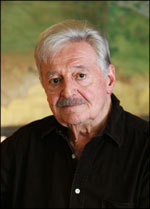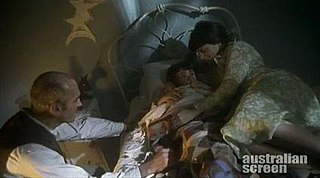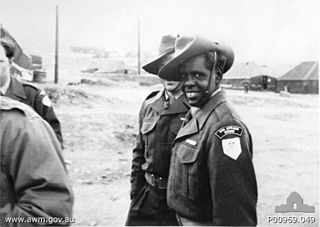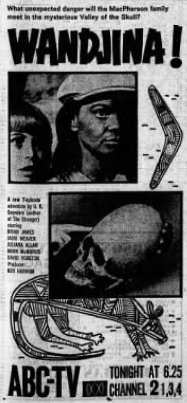Related Research Articles

Peter Joshua Sculthorpe was an Australian composer. Much of his music resulted from an interest in the music of countries neighbouring Australia as well as from the impulse to bring together aspects of Aboriginal Australian music with that of the heritage of the West. He was known primarily for his orchestral and chamber music, such as Kakadu (1988) and Earth Cry (1986), which evoke the sounds and feeling of the Australian bushland and outback. He also wrote 18 string quartets, using unusual timbral effects, works for piano, and two operas. He stated that he wanted his music to make people feel better and happier for having listened to it. He typically avoided the dense, atonal techniques of many of his contemporary composers. His work was often characterised by its distinctive use of percussion. As one of the compositional pioneers of a distinctively Australian sound, Sculthorpe and his music have been likened to the role played by Aaron Copland in America's musical coming of age.
The 13th Annual TV Week Logie Awards were presented on Friday 26 March 1971 at Southern Cross Hotel in Melbourne and broadcast on the Nine Network. Bert Newton from the Nine Network was the Master of Ceremonies. American television actors Michael Cole, Peter Haskell, Bob Crane and Karen Jensen appeared as guests. This article lists the winners of Logie Awards for 1970:
The 18th Annual TV Week Logie Awards were presented on Friday 12 March 1976 at Southern Cross Hotel in Melbourne and broadcast on the Nine Network. Bert Newton from the Nine Network was the Master of Ceremonies. American film star Lee Marvin, television actors Henry Winkler, Martin Milner and Arte Johnson, and British actors Gordon Jackson and Susannah York appeared as guests.
Homicide was a landmark Australian television police procedural drama series broadcast on the Seven Network and produced by Crawford Productions. It was the television successor to Crawfords' radio series D24. The "Consummate Homicide cast" includes the four characters that are the best known: Det. Snr. Sgt. David "Mac" MacKay, Det. Sgt. Peter Barnes, Inspector Colin Fox and Sen. Det. Jim Patterson.
Division 4 is an Australian television police drama series made by Crawford Productions for the Nine Network between 1969 and 1975 for 301 episodes.
John Andrew Durrant Olle was an Australian radio and television presenter who mostly worked for the Australian Broadcasting Corporation.
Certain Women was an Australian television soap opera created by prominent Australian TV dramatist Tony Morphett and produced by the Australian Broadcasting Commission between 1973 and 1976. There were a total of 166 fifty-minute episodes. Episodes 1–59 were produced in black and white and, starting in with the introduction of colour broadcasting in Australia in 1975, episodes 60–166 were produced and broadcast in colour.
Rafferty's Rules is an Australian television drama series which ran from 1987 to 1991 on the Seven Network.

Chris Haywood is an English-born Australian actor, writer and producer, with close to 500 screen performances to his name. Haywood has also worked as a casting director, art director, sound recordist, camera operator, gaffer, grip, location and unit manager.
Rush is an Australian television series produced by the Australian Broadcasting Corporation between 1974 and 1976. The first 13 episodes were produced in 1974 and filmed in black and white. In 1976, 13 more episodes were produced, in colour, in conjunction with French public broadcaster Antenne 2. Each series featured a different cast with the exception of John Waters.

One Night the Moon is a 2001 Australian musical non-feature film starring husband and wife team Paul Kelly, a singer-songwriter, and Kaarin Fairfax, a film and television actress, along with their daughter Memphis Kelly. The film was directed by Rachel Perkins and co-written by Perkins with John Romeril. In 2009 Romeril adapted the script as a musical theatre work.

The Last Confession of Alexander Pearce is a 2008 Australian-Irish film directed by Michael James Rowland starring Irish actors Adrian Dunbar as Philip Conolly and Ciarán McMenamin as bushranger Alexander Pearce and an ensemble Australian cast, including Dan Wyllie, Don Hany and Chris Haywood. The film was shot on location in Tasmania and Sydney between April and May 2008.

Steve Dodd was an Aboriginal Australian actor, notable for playing Aboriginal characters across seven decades of Australian film. After beginning his working life as a stockman and rodeo rider, Dodd was given his first film roles by prominent Australian actor Chips Rafferty. His career was interrupted by six years in the Australian Army during the Korean War, and limited by typecasting.

The Timeless Land (1941) is a work of historical fiction by Eleanor Dark (1901–1985). The novel The Timeless Land is the first of The Timeless Land trilogy of novels about European settlement and exploration of Australia.

The Fourth Wish is a 1976 Australian family film directed by Don Chaffey based on a three-part 1974 TV drama from the ABC.
Rites of Passage is a music theatre work written by the Australian composer Peter Sculthorpe in 1972–73. It is often categorised as an opera, but it does not conform to the traditional concept of opera. It is written for dancers depicting the ritual of initiation of the Aranda people, an indigenous tribe; double SATB chorus singing words from Boethius and others; three percussionists, two tubas, piano (echoed), six cellos and four double basses; but no parts for individual singers. Sculthorpe drew on the approach espoused by Jean-Baptiste Lully, in which dance, drama and music are not separated.
The Highest Honour is a 1982 Australian/Japanese co-production about Operation Jaywick and Operation Rimau by Z Special Unit during World War II.

Wandjina! was an Australian children's science fantasy television series produced by ABC Television and first aired in 1966. Its story, inspired by Dreamtime mythology of the spirit ancestors of the Kimberley region of north-West Australia, was about three teenagers caught up in an adventure linked to local sacred Aboriginal cave paintings of the Wandjina — the "people from the sky" who visited long ago, in the Dreamtime.
Michael Francis Hannan is an Australian composer, keyboardist, and musicologist. Described in Baker's Biographical Dictionary of Musicians as a composer "exceptionally gifted for the exploration of tonal, polytonal, and atonal techniques", Hannan is also the author of a critical biography of the Australian composer Peter Sculthorpe. He has been a music professor at Southern Cross University since 1986.
Michael Cove is a British-Australian writer and journalist who has worked in film, television and theatre. He worked as a film editor in Britain before emigrating to Australia. He wrote a number of stage plays in the 1970s before working more in television.
References
- ↑ Ed. Scott Murray, Australia on the Small Screen 1970-1995, Oxford Uni Press, 1996 p52
- ↑ "COLOUR TV NEW SERIES OF ABC COLOUR PROGRAMS". The Canberra Times . Vol. 49, no. 14, 004. Australian Capital Territory, Australia. 4 March 1975. p. 15. Retrieved 10 February 2017– via National Library of Australia.
- ↑ 1976 TV Week Logie Awards accessed 27 June 2013
- ↑ Craig, Michael (2005). The Smallest Giant: An Actor's Life. Allen and Unwin. p. 183.
- ↑ "Port Essington". Leichardt Land.
- ↑ "Australian Biography: Interview with Peter Sculthorpe". National Film and Sound Archive.
- ↑ Hannan, Michael (2011). "SCORING ESSINGTON: Composition, Comprovisation, Collaboration" (PDF). Screen Sound.